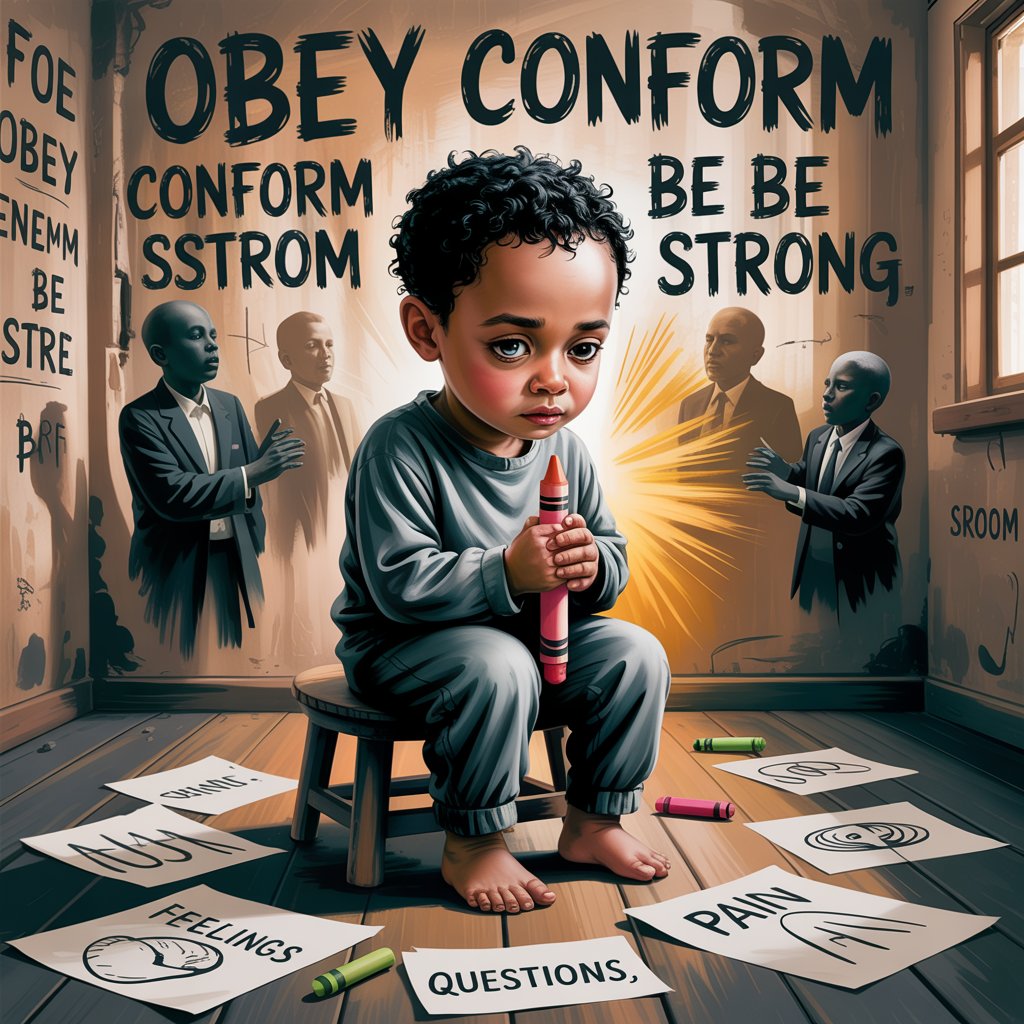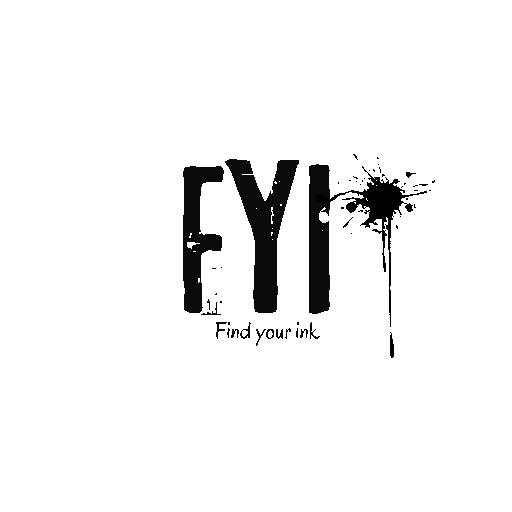It’s not your fault. But it is your fight.
Let’s be honest: the average African home was not built to nurture emotional intelligence. It was built for survival, for structure, for discipline—but not for emotional wholeness. And while that foundation may have kept the house standing, it left many cracks in the walls of the soul.
We were raised to respect our elders, to obey without question, and to swallow our pain with a forced smile.
But here’s the truth:
What you silence in childhood will scream in adulthood.
— David, Find Your Ink
Authoritarian Parenting and the Death of Emotional Language
In many African homes, the parenting model was simple and strict:
“Do as I say, not as I do.”
Emotions were treated as inconveniences, not insights.
A child who cried was “weak.”
A child who questioned was “stubborn.”
A child who was hurting was “looking for attention.”
So what happened?
We learned to repress, not reflect.
To obey, not understand.
To conform, not connect.
And in the process, we lost one of the most vital tools God gave us for navigating life:
the ability to feel with clarity and respond with wisdom.
When a child’s emotions are consistently invalidated, they grow up emotionally mute.
They struggle to name what they feel, let alone handle what others feel.
That’s not just a parenting issue.
That’s a generational crisis.

The Normalization of Trauma
Abuse.
Neglect.
Absent fathers.
Loss.
Fear.
Chaos.
These are not rare exceptions.
They are recurring themes in the story of the African child.
But because our culture often equates strength with silence, we’re taught to push through, not process.
To endure, not examine.
To keep moving—but never to stop and heal.
But trauma doesn’t disappear just because it’s ignored.
It settles in the bones.
It warps how we trust, how we love, how we react.
Some of us go numb.
Others live on edge, constantly bracing for the next emotional explosion.
Many of us walk around with broken hearts and smiling faces—
hyper-functional, but emotionally bankrupt.
Even Our Languages Don’t Help
Our African languages are rich in culture, wisdom, and history.
But many lack the emotional vocabulary we need for healing.
We can say “I’m angry” or “I’m sad,”
but not “I feel unseen,”
not “I’m grieving and confused,”
not “I’m overwhelmed by uncertainty.”
Without the language, how do you express?
Without expression, how do you heal?
So What Can You Do If You See Yourself in This?
If you’ve read this far and it hits a little too close to home—
breathe.
You are not broken.
You were simply not taught.
But what wasn’t taught can be learned.
And what was lost can be restored.
Here’s where to start:
1. Learn the Language of Emotions
Start naming what you feel.
Use tools like emotion wheels, reflection journals, or voice notes.
Emotional intelligence begins with emotional literacy.
2. Create Safe Emotional Spaces
Find friends, mentors, or therapists who allow you to feel without shame.
Healing doesn’t happen in isolation.
It happens in safe relationships.
3. Read and Reflect
Books like
Emotionally Healthy Spirituality by Peter Scazzero
“Emotional health and spiritual maturity are inseparable. It is not possible to be spiritually mature while remaining emotionally immature.”
If that line hit you in the gut, this book might be your next step toward real healing.
I share this book not for profit, but for the healing it offers. If you choose to purchase through the link, I may earn a small commission—at no extra cost to you-but it helps me keep writing. That said, I only ever share what I’d hand to a friend.
4. Talk to God Honestly
Don’t just pray in clichés.
Bring your whole heart into God’s presence.
Lament. Rejoice. Wrestle.
He can handle your emotions—even the ones you were told to hide.
5. Practice Empathy Daily
Listen without fixing.
Validate before advising.
Feel before responding.
Emotional intelligence isn’t about being perfect.
It’s about being present.
The Path Forward
Emotional intelligence is not a Western idea.
It is a deeply human need.
It is biblical. It is spiritual. It is necessary.
And maybe—just maybe—if we dare to do the inner work,
to learn, to feel, to name, to connect,
we’ll raise a generation that is both strong and soft,
both disciplined and discerning,
both wise and emotionally whole.
Because the goal isn’t just to raise smart children.
It’s to raise whole people.
You were not broken—you were just not taught. But now, you know. And you can begin. Will you?








